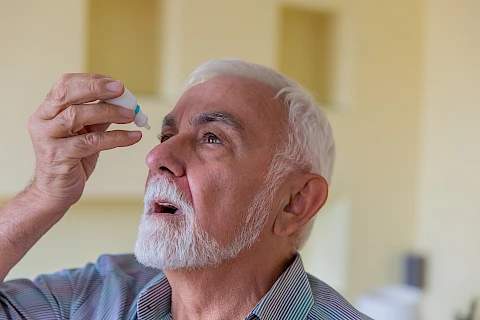
As our bodies age, it sometimes reacts differently to environmental irritants, including allergens. For caregivers, it's essential to recognize these changes and respond accordingly to ensure the safety and comfort of the seniors under your care. Today, we'll help you understand more about senior allergens—what they are, how they affect seniors differently, and how to mitigate their effects. Whether you suspect food allergies or are grappling with the impacts of seasonal allergies on your elderly loved one, this guide is here to offer practical solutions in your caregiving journey.
What You Need to Know About Senior Allergies
Allergies occur when the immune system reacts to substances known as allergens. While allergies can affect people of all ages, seniors are unique due to their long-term exposure to various allergens and the potential impact of their ongoing health conditions. Also, as we age, our immune systems weaken. As such, a common allergen like dust, pet dander, or specific foods may result in more severe reactions in seniors than in younger individuals.
Seasonal Allergies and Seniors
Pollen, mold, and dust are more abundant in certain seasons and can adversely affect seniors. To manage these allergies effectively, consider installing air purifiers and keeping windows closed during high-pollen seasons.
Recognizing the Symptoms of Allergies in Seniors
Allergy symptoms can often mimic those of other health conditions, making it vital to accurately distinguish between the two. Typical signs include:
- Coughing
- Sneezing
- Itchy or watery eyes
- Skin rashes
- Digestive discomfort
Because these symptoms can often be mistaken for other illnesses, monitoring their frequency and context is key. For instance, if symptoms occur following exposure to specific substances or during certain times of the year, an allergy is likely the cause. Of course, only a healthcare provider can definitively diagnose allergies.
Steps to Identify Allergens
Identifying particular allergens affecting a senior can be a complex process that requires a methodical approach. It can involve keeping a detailed log of symptoms, food intake, and environmental factors to establish correlations. If the allergen remains elusive or the individual's response is severe, it may be time to seek professional help. Allergy specialists can conduct tests to pinpoint specific allergens and provide tailored treatment plans.
Preventing Allergen Exposure
Preventing exposure to allergens is as important as identifying them. Regular house cleaning can reduce common allergens like dust and pet dander. For individuals sensitive to chemical cleaners, consider using natural cleaning products. Hypoallergenic bedding, regular grooming of pets, and maintaining a balanced diet can also contribute to better health for the senior.
Stay Healthy With Senior Helpers
Caregivers are instrumental in identifying and managing allergens that affect seniors. Understanding what allergens are, recognizing their symptoms, and taking proactive steps to prevent exposure can significantly enhance the well-being of seniors.
Remember, when caregiving feels overwhelming, professional help is available. If you're in Holden, Auburn, Millbury, Leicester, or North Oxford, contact us at Senior Helpers Worcester. We're here to support you in providing the best possible care for your senior loved one.